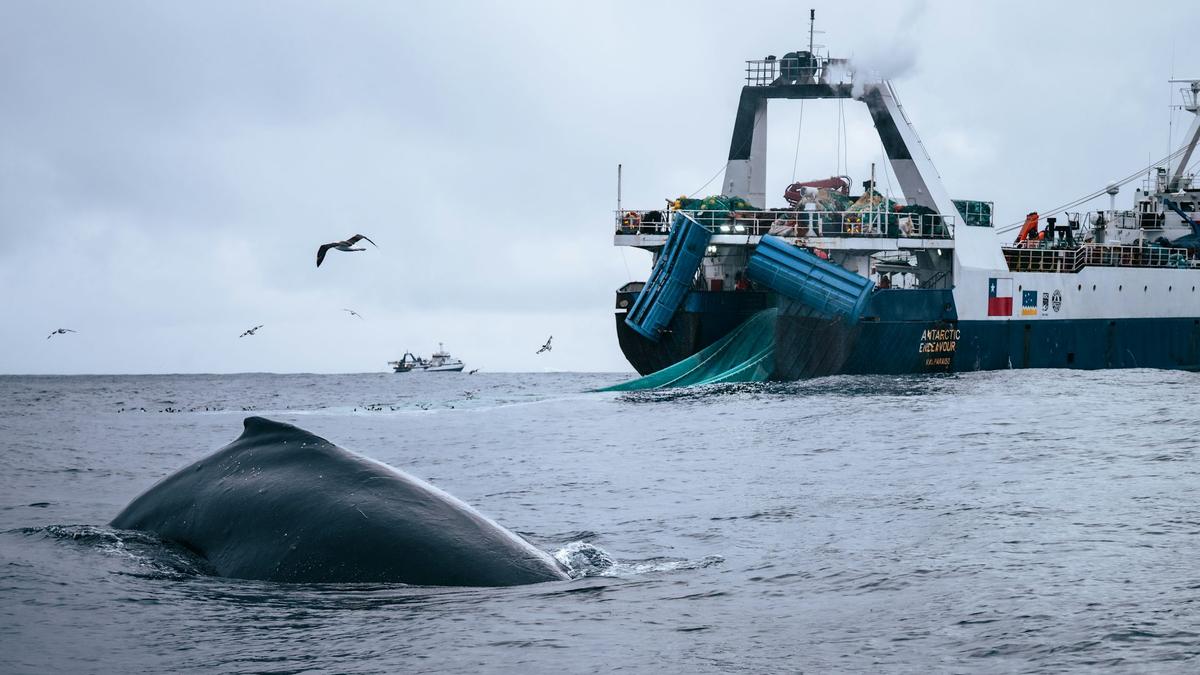
Whales near Antarctica face dire competitor for krill: industrial fishing Premium
The Hindu
The Southern Ocean faces threats from expanding krill fishing, endangering baleen whales' fragile recovery efforts.
The Southern Ocean encircling Antarctica is the world’s largest feeding ground for baleen whales – species like humpbacks that filter tiny organisms from seawater for food. In the 20th century, whalers killed roughly 2 million large whales in the Southern Ocean. Some populations, like the Antarctic blue whale, were reduced by more than 99% and have been struggling to recover, even though most nations ended commercial whaling in the mid-1980s.
Today a new threat is emerging: industrial fishing for Antarctic krill – tiny swimming crustaceans, roughly 6 cm long. In a newly published study, colleagues and I found that competition with this burgeoning fishery may impede whales’ recovery.
I first learned about this issue in early 2022, when a colleague working aboard a cruise ship told me that he had seen approximately 1,000 fin whales feeding on krill near the South Orkney Islands, just north of Antarctica. This was probably the largest aggregation of baleen whales seen since the 1930s, at the peak of industrial whaling.
My friend also reported that four enormous fishing boats were weaving among the huge group of whales, with large nets deployed. Like the whales, they were fishing for Antarctic krill.
Because the Southern Ocean is so remote, few people realised that krill fishing was competing directly with whales. Together with colleagues from Stanford and the University of Washington, we wrote about this observation in 2023 to draw attention to the potential threat to recovering populations.
We were soon contacted by Sea Shepard Global, a non-profit organisation that works to protect marine wildlife and had been monitoring this situation for several years. They reported that direct overlap between foraging whales and active fishing operations was common.
Now, krill fishing is on the verge of expanding. Along the Antarctic Peninsula, the fishing industry has proposed increasing the catch limit fourfold, from 155,000 tons to 668,101 tons annually.

In October this year, India announced its intention to build Maitri II, the country’s newest research station in Antarctica and India’s fourth, about 40 forty-odd years after the first permanent research station in Antarctica, Dakshin Gangotri, was established. The Hindu talks to Dr Harsh K Gupta, who led the team that established it

How do you create a Christmas tree with crochet? Take notes from crochet artist Sheena Pereira, who co-founded Goa-based Crochet Collective with crocheter Sharmila Majumdar in 2025. Their artwork takes centre stage at the Where We Gather exhibit, which is part of Festivals of Goa, an ongoing exhibition hosted by the Museum of Goa. The collective’s multi-hued, 18-foot crochet Christmas tree has been put together by 25 women from across the State. “I’ve always thought of doing an installation with crochet. So, we thought of doing something throughout the year that would culminate at the year end; something that would resonate with Christmas message — peace, hope, joy, love,” explains Sheena.











